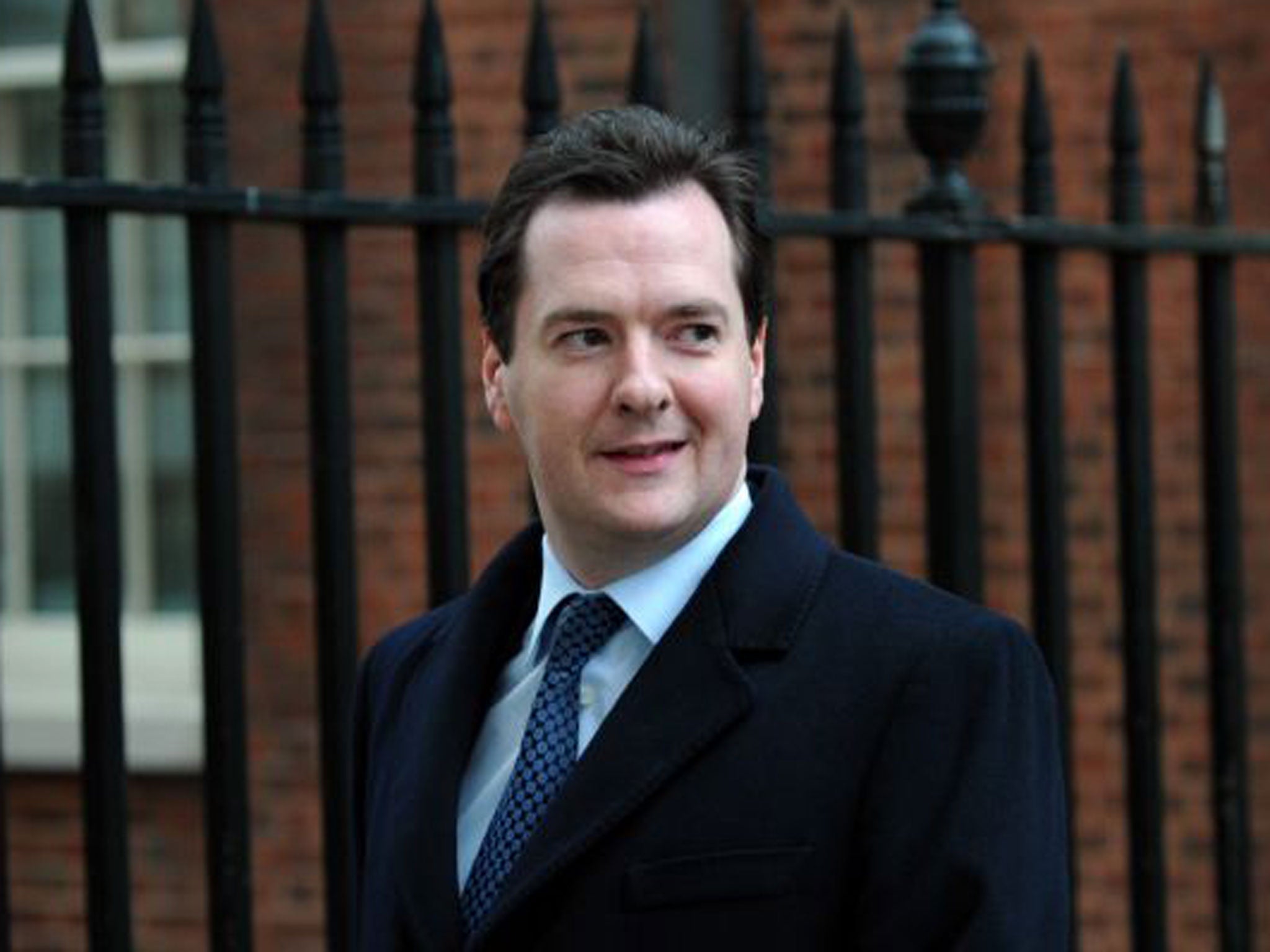Budget: Tax threshold will rise to £10,000 to 'help hard workers'
George Osborne's fourth Budget will prolong squeeze on public-sector pay, risking conflict with trade unions

Your support helps us to tell the story
From reproductive rights to climate change to Big Tech, The Independent is on the ground when the story is developing. Whether it's investigating the financials of Elon Musk's pro-Trump PAC or producing our latest documentary, 'The A Word', which shines a light on the American women fighting for reproductive rights, we know how important it is to parse out the facts from the messaging.
At such a critical moment in US history, we need reporters on the ground. Your donation allows us to keep sending journalists to speak to both sides of the story.
The Independent is trusted by Americans across the entire political spectrum. And unlike many other quality news outlets, we choose not to lock Americans out of our reporting and analysis with paywalls. We believe quality journalism should be available to everyone, paid for by those who can afford it.
Your support makes all the difference.The threshold at which people start to pay income tax is to rise to £10,000 a year, George Osborne will announce in his fourth Budget today.
The Chancellor will present the move as part of his drive to reward people who work hard and help low and middle-income families. It is likely to be the main prize in the Budget for the Liberal Democrats, who pledged a £10,000 threshold in their 2010 election manifesto.
At present, people can earn £8,105 without paying tax, a figure that will rise to £9,440 in the financial year starting on 1 April. Mr Osborne is expected to say it will increase to £10,000 in April 2014, a year earlier than the goal set when the Coalition was formed.
Mr Osborne will announce a much-needed boost to housebuilding as he switches £2.5bn from cuts to Whitehall budgets to major building projects in an attempt to jumpstart the flatlining economy. The Chancellor will prolong the squeeze on public-sector pay, a move that could result in further conflict with trade unions. He is likely to end the automatic wage rises for employees who meet their appraisal targets.
Mr Osborne, who is braced for gloomy forecasts on growth from the independent Office for Budget Responsibility, will reject growing pressure to depart from his "Plan A". He believes the economic picture will look better by the end of this year. A Treasury source said: "This will be a Budget that is going to help people who want to work hard and get on. It will continue with the painstaking work of putting right what went so badly wrong in the… economy. While it is a tougher road than anyone hoped, and while there are no easy answers, we are making progress and the Budget will keep Britain on the right track."
The Chancellor will reject a call by the Business Secretary, Vince Cable, for higher borrowing to fund more construction projects but is expected to announce some extra housebuilding. He is likely to expand the NewBuy scheme, which currently helps first-time buyers, so that it also enables people to move up the housing ladder by buying their second property.
Conservative MPs expect Mr Osborne to answer their pleas to help struggling families by postponing a rise in fuel duty due in September.
Mr Osborne told the Cabinet that day-to-day spending in Whitehall departments will face an extra 1 per cent cut over the next two years so he can divert £2.5bn to building projects and find £1.2bn towards his £10bn cuts target for 2015-16. Part of the money will be found from underspending. But the move will increase the pressure for public-sector wage restraint and job losses. While public-sector workers potentially face less pay, the British armed forces are reportedly in line for a 1.5 per cent pay increase today.
Mr Osborne's announcement yesterday came as the Government faced accusations it was punishing "stay-at-home mums" under plans to give working parents earning up to £150,000 each £1,200 to help with child care because they had a "greater need" than those who do not work.
Budget bingo
Infrastructure (yuk!)
Difficult (decisions on spending cuts)
Course (as in sticking to the course)
Longer (taking longer than expected to clear the deficit)
Eurozone (blame someone else)
Healing (economy is, honestly)
Miracle (no miracle cure)
Housing
Childcare
Employment (record high)
Cyprus (example of what can go wrong)
Restraint (more needed on public spending)
Join our commenting forum
Join thought-provoking conversations, follow other Independent readers and see their replies
Comments